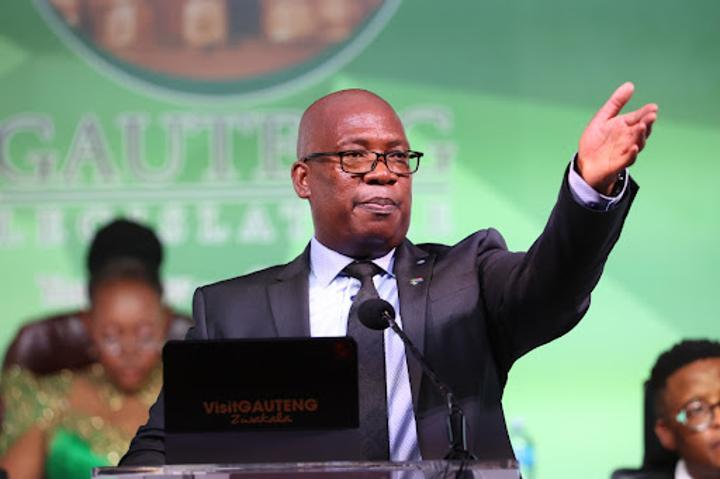Africa-Press – South-Africa. The Usindiso fire inquiry, which probed the Joburg CBD inferno that took the lives of 76 residents, has found that a severe shortage of affordable housing and failed policies force low-income individuals into dangerous buildings.
Premier Panyaza Lesufi released the findings of the final Khampepe report while briefing the media on Wednesday about various issues affecting the province.
The inquiry was established to investigate the cause of the Usindiso building fire in August 2023 and the prevalence of hijacked buildings in Joburg.
The first part of the report was handed to Lesufi in May last year, and recommended that heads of four City of Joburg entities be hauled before a disciplinary committee for contravening bylaws because had they not performed their duties.
At the time, justice Sisi Khampepe said the consequences of the fire would have been mitigated had the city complied with its legal obligations as owner and municipality.
Lesufi said the final report was submitted to his office in June.
The commission’s probe included inspecting close to 110 properties in the Joburg CBD, and according to Lesufi the report states that the root cause of the dire situation in the city was misidentified.
“The investigation challenges the common assumption that hijacked buildings are the primary problem.
“Evidence shows that only a small minority (5.74%) of properties had allegations of rent collection by non-owners. The crisis is instead driven by extreme poverty and a severe lack of affordable housing, forcing people into unsafe living conditions.
“Most properties (79.76%) had fire safety concerns, with most (71.26%) completely lacking any fire safety equipment. The use of combustible materials and blocked escape routes further worsens this danger.”
The inquiry also found that the city’s inability to provide emergency accommodation had paralysed evictions, trapping residents.
According to Lesufi, the report found that buildings were overcrowded and lacked basic services such as water and electricity.
“This leads to squalid conditions, illegal utility connections and extreme fire risks as tenants use flammable materials for light and heat. The buildings are dilapidated, with poor structural integrity, no fire escapes, combustible materials, and health hazards from filth and waste.
“There is widespread noncompliance with city bylaws and a consistent failure to enforce them, allowing buildings to deteriorate. The city has failed to allocate sufficient funds for its housing policies, making its budget for social housing inadequate. Developers face significant hurdles, such as slow approvals and funding, which discourage private investment,” Lesufi quoted from the report.
Some of the commission’s recommendations include that the city should find creative methods to provide requisite infrastructure for those who qualify for the Extended Social Package, including the urgent installation of meters to ensure rebates are passed on to eligible recipients.
It also recommended that the city provides basic municipal services such as electricity, water, sanitation and refuse removal to these buildings immediately.
There should be proper sanitation and access to water, even to high-rise buildings, because “unsanitary conditions and lack of water cannot be allowed to persist”.
Temporary emergency accommodations must be regularly cleaned and maintained, it further said.
Another recommendation was that the city should investigate, through the Johannesburg metro police and in collaboration with the SAPS, whether occupants of bad buildings pay rent to unauthorised individuals out of fear and intimidation, or pay no rent at all.
For More News And Analysis About South-Africa Follow Africa-Press






